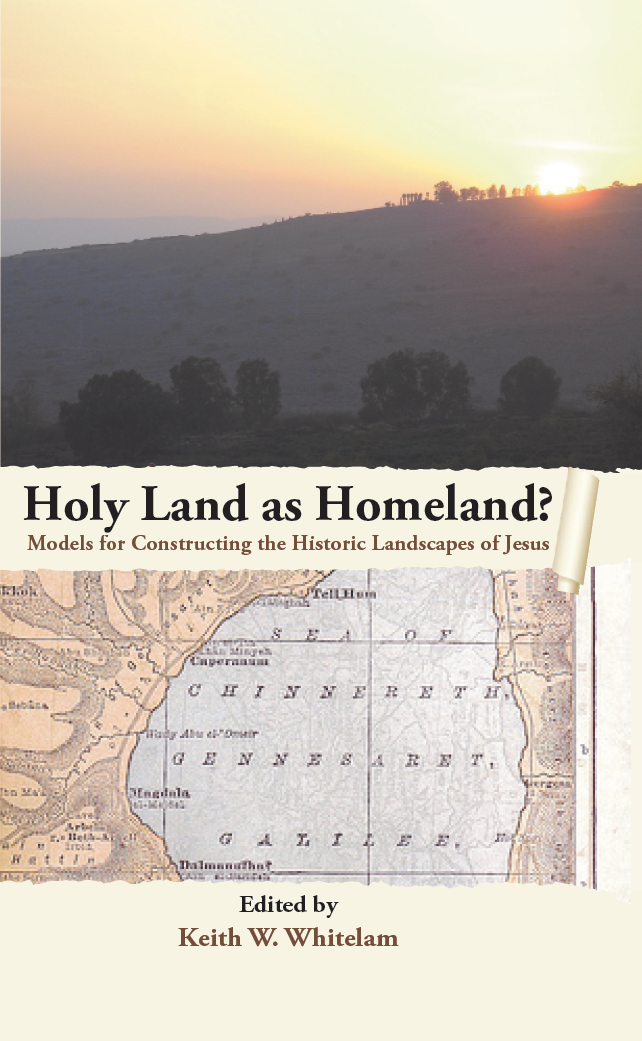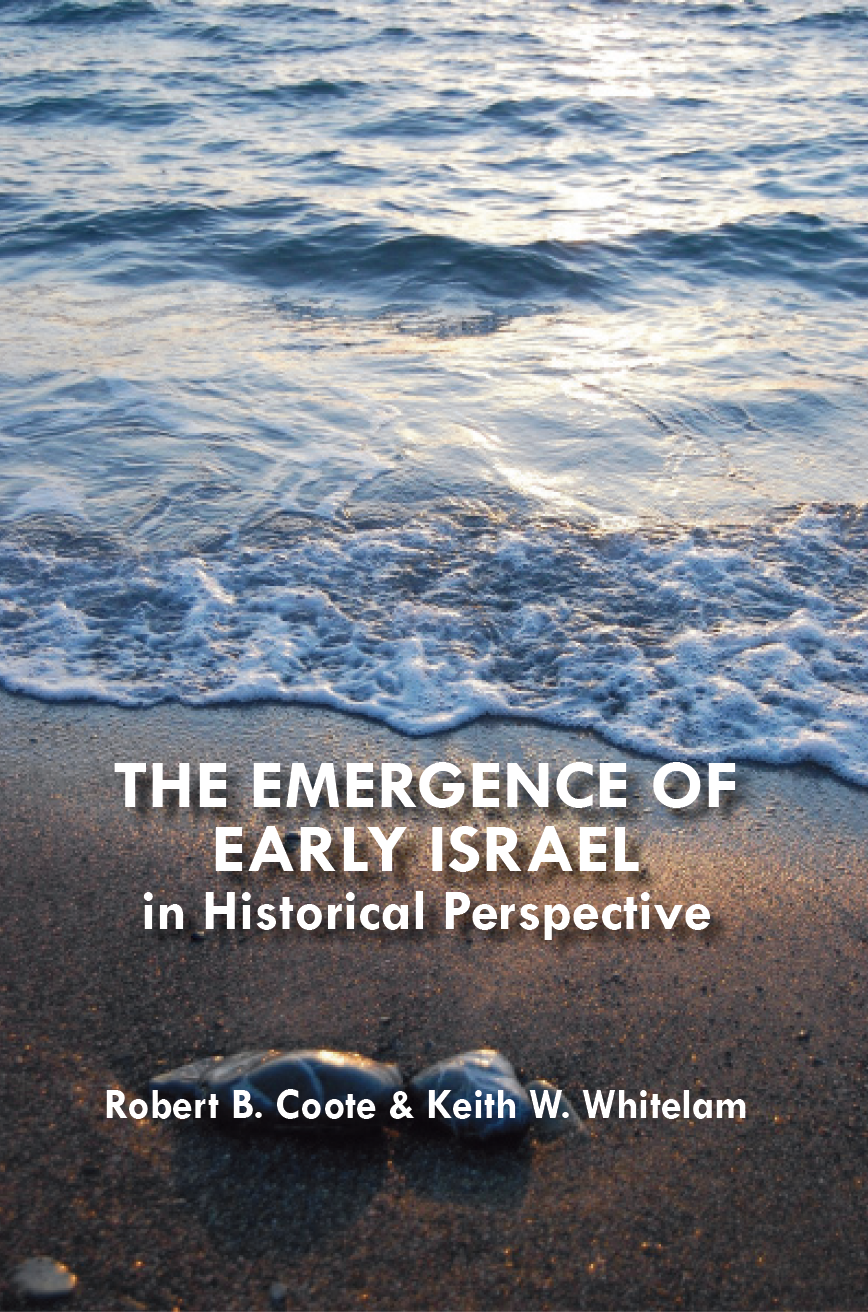
Keith W. Whitelam
Keith W. Whitelam is Professor Emeritus of Biblical Studies in the University of Sheffield.
The Politics of Israel’s Past: The Bible, Archaeology and Nation-Building
Published: July 2013
£60.00
It is not uncommon that historical images —presented as simply given, self-evident and even indisputable —are employed in political readings of the past and used as a legitimizing tool. For that reason, the authors of this volume, biblical scholars, archaeologists, anthropologists and historians, undertake a deconstruction of modern biblical discourses on the Bible's production and the history of ancient Israel, enabling the exploration of critical approaches to ancient Palestine's past, to the history of the peoples of the region, to the history of the biblical text(s) and, last but not least, to the modern political uses of biblical narratives as legitimizing land ownership and nationalisms.
Among the topics treated are the appearance of Judaism and its connection to the production of biblical literature, the politics of archaeological practice in Israel, the role of archaeology in the production of nationalist narratives of the past, the relationship between genetic studies and Jewish nationalism, and the prospects for writing critical histories of ancient Palestine beyond biblical images and religious and political aspirations.
Each article illustrates the close relationship between the Bible, archaeology and processes of nation-building in the State of Israel. The Politics of Israel's Past concerns itself both with the ways in which contemporary politics affects the knowledge of the past and with the processes by which constructions of an ancient past legitimate modern political situations.
The Politics of Israel’s Past: The Bible, Archaeology and Nation-Building
£60.00
It is not uncommon that historical images —presented as simply given, self-evident and even indisputable —are employed in political readings of the past and used as a legitimizing tool. For that reason, the authors of this volume, biblical scholars, archaeologists, anthropologists and historians, undertake a deconstruction of modern biblical discourses on the Bible's production and the history of ancient Israel, enabling the exploration of critical approaches to ancient Palestine's past, to the history of the peoples of the region, to the history of the biblical text(s) and, last but not least, to the modern political uses of biblical narratives as legitimizing land ownership and nationalisms.
Among the topics treated are the appearance of Judaism and its connection to the production of biblical literature, the politics of archaeological practice in Israel, the role of archaeology in the production of nationalist narratives of the past, the relationship between genetic studies and Jewish nationalism, and the prospects for writing critical histories of ancient Palestine beyond biblical images and religious and political aspirations.
Each article illustrates the close relationship between the Bible, archaeology and processes of nation-building in the State of Israel. The Politics of Israel's Past concerns itself both with the ways in which contemporary politics affects the knowledge of the past and with the processes by which constructions of an ancient past legitimate modern political situations.
Holy Land as Homeland? Models for Constructing the Historic Landscapes of Jesus
Published: Oct 2011
£50.00
The quest for the historical Jesus has invariably tried to make sense of his world by constructing what it considers to be the historic landscapes that he inhabited. These essays explore how we do not create an actual past or rediscover an actual landscape with its towns and villages but 'imaginary homelands' that allow us to inhabit and possess the past.
The papers in this volume explore the ways in which constructions of the Holy Land as homeland have been mediated through history textbooks, geographies and maps, and continue to exert an influence on contemporary scholarship. The complex interrelationships between scholarship and its national settings is a constant thread throughout the papers: the work of many of the iconic figures of nineteenth- and twentieth-century European biblical scholarship (Moxnes); the roots of European constructions of homeland from the Enlightenment onwards (Birch); American biblical scholarship in the twentieth century (Long); cartography and the construction of homeland (Whitelam); the constructions of a Galilaean homeland for Jesus (Baergen and Vaage); a contemporary imagined homeland in British politics (Crossley). The final essay takes up the themes of 'home', 'homeland' and 'homelessness' to reflect on the methods and models that underpin contemporary scholarship (Penner and Lopez).
These essays show how the scholarly task is a continuing questioning —and self-questioning —of the models and methods with which we are most at home.
The papers collected in this volume were presented in Oslo as one of the events organized by the 'Jesus in Cultural Complexity: Interpretation, Memory and Identification' project directed by Halvor Moxnes at the University of Oslo and funded by the Norwegian Research Council.
Holy Land as Homeland? Models for Constructing the Historic Landscapes of Jesus
£50.00
The quest for the historical Jesus has invariably tried to make sense of his world by constructing what it considers to be the historic landscapes that he inhabited. These essays explore how we do not create an actual past or rediscover an actual landscape with its towns and villages but 'imaginary homelands' that allow us to inhabit and possess the past.
The papers in this volume explore the ways in which constructions of the Holy Land as homeland have been mediated through history textbooks, geographies and maps, and continue to exert an influence on contemporary scholarship. The complex interrelationships between scholarship and its national settings is a constant thread throughout the papers: the work of many of the iconic figures of nineteenth- and twentieth-century European biblical scholarship (Moxnes); the roots of European constructions of homeland from the Enlightenment onwards (Birch); American biblical scholarship in the twentieth century (Long); cartography and the construction of homeland (Whitelam); the constructions of a Galilaean homeland for Jesus (Baergen and Vaage); a contemporary imagined homeland in British politics (Crossley). The final essay takes up the themes of 'home', 'homeland' and 'homelessness' to reflect on the methods and models that underpin contemporary scholarship (Penner and Lopez).
These essays show how the scholarly task is a continuing questioning —and self-questioning —of the models and methods with which we are most at home.
The papers collected in this volume were presented in Oslo as one of the events organized by the 'Jesus in Cultural Complexity: Interpretation, Memory and Identification' project directed by Halvor Moxnes at the University of Oslo and funded by the Norwegian Research Council.
The Emergence of Early Israel in Historical Perspective
Published: Feb 2010
£20.00
This highly original study takes a panoramic view of history in order to set the emergence of Israel in the broadest possible perspective. It begins with a study of the nature of history writing and the increasing problems involved in utilizing the biblical text for historical reconstruction. The authors suggest an alternative approach which assigns priority to interpreting archaeological data within a broad interdisciplinary framework. The book provides a broad overview of settlement patterns and social relations throughout Palestinian history from the middle of the third millennium BCE to the present day in order to illustrate how the emergence of Israel in the early Iron Age fits into the march of time.
Archaeological evidence for the appearance of dispersed settlements in the highlands and steppes of Palestine at the beginning of the early Iron Age followed by the rapid centralization of this area suggests that Israel emerged within Palestine in response to the decline in east Mediterranean trade at the end of the Late Bronze Age. The development of an Israelite monarchy is seen as being inextricably linked to the factors involved in Israel's emergence-as distinct from much previous research which has presented the monarchy as alien to the origins of Israel.
This volume is a reprint of the 1987 edition with a new preface by Robert B. Coote and Keith W. Whitelam setting the work in the context of recent debates on the history of ancient Israel.
The Emergence of Early Israel in Historical Perspective
£20.00
This highly original study takes a panoramic view of history in order to set the emergence of Israel in the broadest possible perspective. It begins with a study of the nature of history writing and the increasing problems involved in utilizing the biblical text for historical reconstruction. The authors suggest an alternative approach which assigns priority to interpreting archaeological data within a broad interdisciplinary framework. The book provides a broad overview of settlement patterns and social relations throughout Palestinian history from the middle of the third millennium BCE to the present day in order to illustrate how the emergence of Israel in the early Iron Age fits into the march of time.
Archaeological evidence for the appearance of dispersed settlements in the highlands and steppes of Palestine at the beginning of the early Iron Age followed by the rapid centralization of this area suggests that Israel emerged within Palestine in response to the decline in east Mediterranean trade at the end of the Late Bronze Age. The development of an Israelite monarchy is seen as being inextricably linked to the factors involved in Israel's emergence-as distinct from much previous research which has presented the monarchy as alien to the origins of Israel.
This volume is a reprint of the 1987 edition with a new preface by Robert B. Coote and Keith W. Whitelam setting the work in the context of recent debates on the history of ancient Israel.



